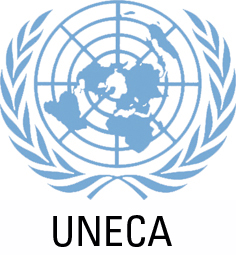Focal point
Location
P.O. Box 3001
Addis Ababa, Ethiopia
Established by the Economic and Social Council (ECOSOC) of the United Nations (UN) in 1958 as one of the UN's five regional commissions, ECA's mandate is to promote the economic and social development of its member States, foster intra-regional integration, and promote international cooperation for Africa's development.
Made up of 54 member States, and playing a dual role as a regional arm of the UN and as a key component of the African institutional landscape, ECA is well positioned to make unique contributions to address the Continent’s development challenges.
ECA’s thematic areas of focus are as follows:
- Macroeconomic Policy
- Regional Integration and Trade
- Social Development
- Natural Resources
- Innovation and Technology
- Gender
- Governance
Members:
Resources
Displaying 836 - 840 of 872Considérations sur l'aménagement du territoire en Afrique
Le principal problème de l'Afrique d'aujourd'hui dans ce domaine est de bien comprendre le concept moderne d'urbanisme. Comme c'était le cas au XVIIIe et au XIXe siècle en Europe, l’aménagement du territoire est considéré actuellement en Afrique comme un moyen de remédier aux errements du développement urbain.
Industries rurales de transformation des produits agricoles et horticoles
Comme l'économie africaine est en grande partie fondée sur l'agriculture, l'industrialisation est appelée à jouer un rôle capital dans la croissance économique. Or tout effort d'industrialisation suppose le plus souvent qu'une place de grande importance a été réservée au secteur agricole dans les programmes de développement économique.
Rapport sur le centre FAO/CEA de perfectionnement du crédit agricole en Afrique
La commission économique pour l’Afrique a patronné, en collaboration avec la FAO, un Centre de perfectionnement du crédit agricole en Afrique dont la session a eu lieu du 7 au 17 mai 1962 à la Maison de 1'Afrique, à Addis-Abeba, Ethiopie.
Rapport sur le centre FAO/CEA de perfectionnement du crédit agricole en Afrique
La commission économique pour l’Afrique a patronné, en collaboration avec la FAO, un Centre de perfectionnement du crédit agricole en Afrique dont la session a eu lieu du 7 au 17 mai 1962 à la Maison de 1'Afrique, à Addis-Abeba, Ethiopie.
Report on FAO/ECA development center on agricultural credit for Africa
The objectives of the Centre were to give an opportunity to officers of credit institutions and policy makers in the fields of agricultural credit, including cooperative and supervised credit, and in agricultural development programming in Africa to exchange views and experiences, to examine the needs for credit facilities' for farmers and the kind of facilities likely to be most effective.


